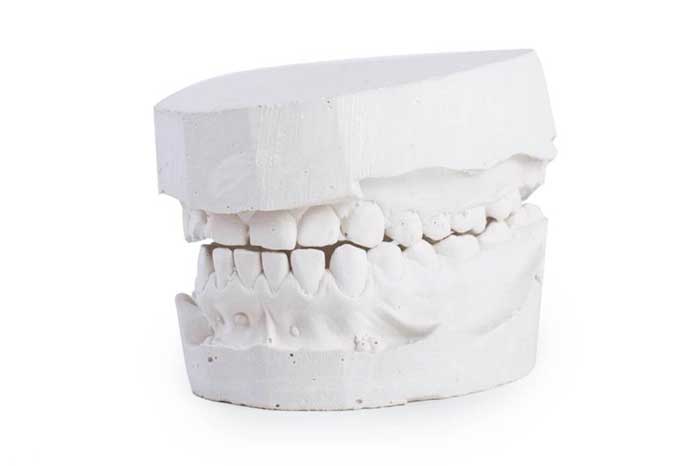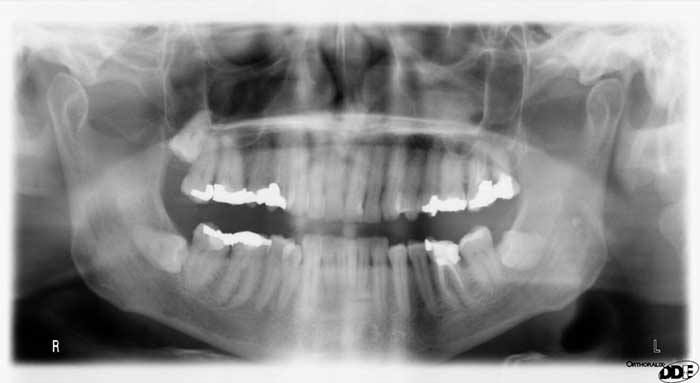Wisdom Teeth Removal

If your dentist is recommending that you have your wisdom teeth removed, you may be hesitant to move forward. Here are three frequently asked questions concerning wisdom teeth that can help you make a more informed decision:
Why Do We Have Wisdom Teeth?
(and why are they called? wisdom teeth??)
Anthropologists believe wisdom teeth, or the third set of molars were needed for our ancestors?s early diet, of course, rough food? like leaves, roots, nuts, and meats? which required more chewing power and resulted in excessive wear of the teeth.? Modern-day foods can be and are often cooked to soften them so there is less chewing involved. In addition, the invention of tools such as forks and knives, allowing us to cut our food into smaller pieces, has made the need for wisdom teeth unnecessary.
Our teeth develop in a very organized and chronological fashion, over a course of years, beginning with our baby primary teeth, which start coming in for most children around six months,? and leading to permanent teeth, with the first molar erupting around the age of six and the second molar erupting around the age of 12. Although all of these teeth have already formed in your mouth and can be seen using an x-ray, wisdom teeth only? begin forming around your tenth birthday, and are the last set of molars on the tooth-development timeline, so they usually do not come up through the gums until you are between the ages of 17 and 25. Because this is the age that people are said to become wiser, this set of third molars has been nicknamed? wisdom teeth.?
How Necessary Is Wisdom Teeth Removal?
When wisdom teeth come incorrectly, they can help you chew your food. However, there is not usually enough space in our jaws to accommodate them. ? Because of the lack of room, wisdom teeth tend to come in at an angle, or they do not fully emerge and become impacted. This can cause multiple problems for the rest of your teeth. Because human jaws have become smaller throughout evolutionary history, when wisdom teeth form they often become impacted, or blocked, by the other teeth around them. Also, if the tooth partially erupts, food can get trapped in the gum tissue surrounding it, which can lead to bacteria growth and, possibly, a serious infection. The x-ray at the top of the page shows the wisdom teeth on the bottom of the jaw pushing or crowding the second molars next to them. The top wisdom teeth, although relatively straight, could cause sinus issues if the roots grow longer, pushing into the sinus cavity and causing pain. You could also be experiencing pain at the back of your jaw where the wisdom teeth may be coming in. Wisdom teeth that do not erupt but remain tucked away can also lead to crowding or displacement of permanent teeth. On very rare occasions, a cyst (fluid-filled sac) can form in the soft tissue surrounding the impacted wisdom tooth. These cysts can lead to bone destruction, jaw expansion, or damage to the surrounding teeth. Even more uncommonly, tumors can develop in the cysts, which can lead to the jaw spontaneously breaking if the tumor or cyst grows too much. Gum disease and tooth decay can also be attributed to wisdom teeth.

Some people never get wisdom teeth, (around 2% of people are born without any wisdom teeth at all!)? but for those who do, the number of teeth that come in may be anywhere from one to four? and, on very rare occasions, more than four, according to a study published in the Journal of the Canadian Dental Association. The bottom molars are the ones taken out most often.
Wisdom teeth that are not removed should continue to be monitored because the potential for developing problems later on still exists. As people age, they are at greater risk of health problems? and that includes potential problems with their wisdom teeth.
There are people that develop wisdom teeth that function just as well as every other tooth in the mouth, and as a result, they do not need to have them extracted. But no one can predict when third molar complications will occur, so wisdom teeth that are not removed should continue to be monitored because the potential for developing problems later on still exists. As people age, they are at greater risk of health problems? and that includes potential problems with their wisdom teeth. The American Association of Oral and Maxillofacial Surgeons (AAOMS) estimates that about 85 percent of wisdom teeth will eventually need to be removed.

When Should I Have Them Removed?
If you or anyone in your family do have wisdom teeth that you are thinking of having taken out, the AAOMS strongly recommends that patients remove wisdom teeth when they are young adults, in order to? prevent future problems and to ensure optimal healing.? People who have oral surgery after the age of 35 have higher risks for complications, harder surgeries, and longer healing times than those who get them removed in their late teens or early 20?s. Fully developed roots are more difficult to remove.? The best time to get those suckers out is when the roots are about two-thirds formed, which is generally between the ages of 15 to 18.
Before making any decisions, we would love to have you come in to see Dr. Cooley, who will examine your mouth and take an x-ray. Together, we can discuss the best course of treatment and get a referral to an oral surgeon. In the meantime, be sure to brush your teeth twice a day, floss around all of your teeth (including your wisdom teeth), and visit you’re a dentist regularly. Regular dental visits allow your dentist to evaluate your wisdom teeth and your overall dental health. Please give us a call at 901-754-3117 and schedule a time to come in and meet Dr. Cooley!
